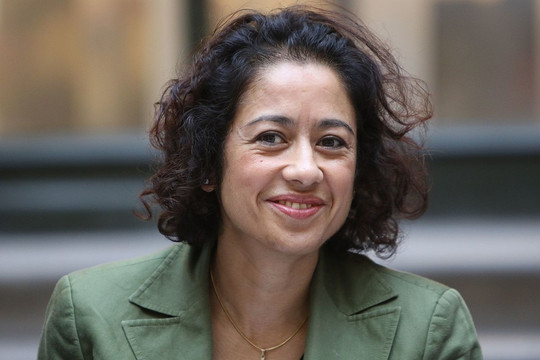1. What convinced you to lodge a claim against the BBC for equal pay?
I’d known from the moment I took up the Newswatch presenter post in 2012 that I was being underpaid and had tried to get this corrected with the BBC, internally and quietly. After the public publication of the first list of the most highly paid BBC presenters in 2017 I knew the gap with my male comparator was much bigger than I’d previously imagined. I raised an official equal pay grievance using the internal BBC processes – informal and then formal - to try and get it resolved. I pursued them to the end of the road. That took 2 years. The BBC still refused to accept there was a problem. By this point I was hitting the legal deadline for being able to claim the full 6 years and 6 months of backpay, so I filed for tribunal.
2. Did you fear any kind of retaliation for taking a case against your own employer?
The BBC had already agreed to give me full backdated pay on 2 other programmes I was presenting on radio. On those jobs I’d uncovered pay gaps of between 33% and 50% with male colleagues. So, I felt this third programme – Newswatch - was just the last one to resolve. The pay gap was too big for me to accept. I thought I can’t live with this. I’d rather it was all made public and everyone knew the truth, regardless of what happens to me. That was what motivated me.
3. The tribunal found the BBC guilty of gender discrimination, which led them to reach a financial settlement with you. Have the BBC's pay structures been changed following the verdict?
The BBC had started changing some of its pay structures before my tribunal. I can’t speak for all the many thousands of colleagues in different departments, but I notice 700 BBC women have had pay rises since my case. There is a lot of concern still that the new structures continue to disguise inequality and discrimination. They certainly aren’t transparent.
4. What has been the National Union of Journalists (NUJ) 's role in supporting you through this process?
The NUJ has been my rock. They’ve been everything. Without their financial as well as professional backing I don’t think I could have considered taking on the risk of going to an employment tribunal. It was the NUJ who referred my case to Caroline Underhill, the very experienced solicitor at Thompsons, who specializes in unions and discrimination and she was the one who said, you’ve got a case. And she expressed her sympathy. That’s when I thought this might succeed, if she believes in it. Claire Darwin, the barrister who represented me at the tribunal, had already been advising the NUJ since 2017 on pay discrimination and I knew how good she was. She was willing to fight the case, which gave me hope.
And crucially the NUJ”s general secretary Michelle Stanistreet was on my side every step of the way. She came to all my internal hearings when I was going through the BBC’s internal grievance procedure on equal pay. And then she was the only other witness for me in my tribunal. She had the evidence and the overview of how the BBC had behaved towards women for years over pay discrimination. She was the first witness to give evidence at the very start of my tribunal and it was inspiring watching her. In addition, there was amazing support from Sarah Kavanagh and others at NUJ head office, who helped me prepare a press release before the start of the tribunal, with the backing of high-profile journalists, church leaders, politicians and broadcasters, and managed media coverage while it was going on. I will always be hugely grateful to all these women and men in my union for their backing.
5. Did you have any issues/problems going back into the BBC after winning the case?
No. From my point of view, I was always proud to work for the BBC and I went straight back into work after my tribunal. I also ensured I went in on the day the result was due to come, not knowing if I had won or lost. I’ve kept the tribunal separate from my work. Many colleagues have been very supportive. I got a lot of smiles and handshakes and hugs from everyone from the security guards and the cleaners to fellow journalists and editors.
6. You have received strong support from women in the UK and beyond throughout the process. What advice would you give to other female colleagues that are paid unequally?
In the short-term talk to each other. Ask male and female colleagues what they’re earning and share the information in return. I’ve helped out lower paid male colleagues in the past. It’s reciprocal. Appeal to your male colleagues’ sense of decency. All 3 male comparators I approached told me what they were earning which made it easier to bring my case. I am hugely grateful to them. Men and women are on the same side. It’s about being allies. But ultimately we shouldn’t be dependent on the mercy of men.
In the long term there is no alternative to legislation to make pay transparent as it is in nations such as Denmark. It brings down excessive high pay, too. Lower paid women (and this applies to other discriminated- against groups, too) are essentially paying the megabucks salaries.

